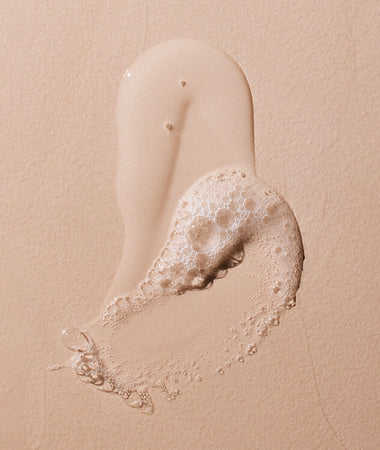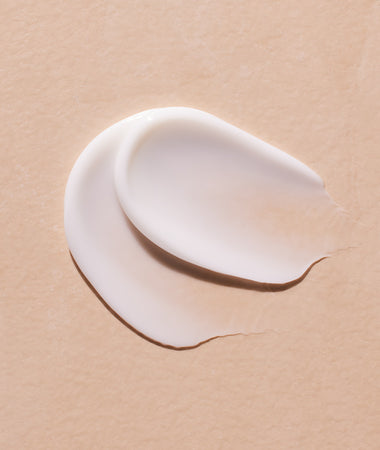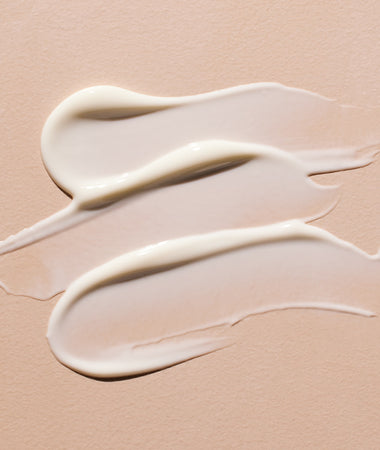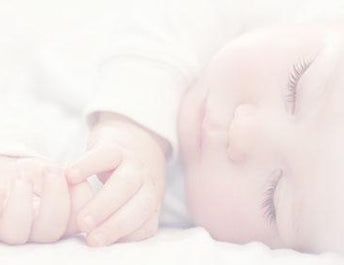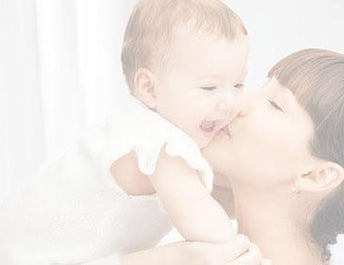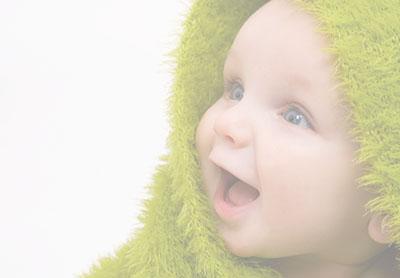
Baby Acne: Causes, Prevention, And The Best Treatment Methods
Even though baby acne is one of the most common skin conditions that develop in newborns and infants, watching these little bumps flare up can be a stressful time for a parent. To help alleviate that stress, the experts at Mustela have put together 11 tips for getting rid of baby acne.
Table Of Contents
- What Is Baby Acne?
- What Does Baby Acne Look Like?
- How Can I Tell Baby Acne Apart From Other Skin Conditions?
- What Causes Baby Acne?
- 11 Tips For Treating Baby Acne
- Frequently Asked Questions

Before we get to the top 11 baby acne treatment tips, let’s touch on four important questions:
- What is baby acne?
- What does baby acne look like?
- How can I tell baby acne apart from other skin conditions?
- What causes baby acne?
What Is Baby Acne?
Baby acne is just like the acne that many suffer from in their teens and twenties. Baby acne can pop up anywhere on your newborn’s body, but it’s most often seen on their cheeks and back.
Baby acne is also known as neonatal acne. The condition, which is usually treatable, occurs in about 30 percent of newborns. It is different from infantile acne in that open “blackheads” don’t usually appear in baby acne.
This skin condition normally becomes visible within two to four weeks of your baby’s birth. That said, some newborns have acne when they’re born. It may also affect infants at any point during their first several months of life.
What Does Baby Acne Look Like?
Baby acne looks similar to the acne that many teenagers and adults have dealt with — hard red bumps that are surrounded by red, inflamed skin. These bumps are found on your baby’s skin and may develop white pustules (whiteheads), just like adolescent and adult acne.
Sometimes, however, baby acne can be difficult to identify. It might be hard to tell the difference between acne and an allergic reaction, a rash, or another skin condition, like eczema or cradle cap.
In the next section, we’ll talk about these differences in more detail so that you can easily identify baby acne.
How Is Baby Acne Different From Other Skin Conditions?
Here are some general guidelines for distinguishing baby acne from other skin conditions that can often look quite similar.
Allergic Reactions
First, let’s start with rashes caused by allergic reactions. These types of breakouts tend to appear rapidly, sometimes in just 10 minutes. Many times, allergic reactions take the form of hives, which can look similar to baby acne.
The quick appearance of an allergy-induced rash is the best indicator that it’s a reaction. If you’ve recently started using a new skincare product on your baby or introduced a new food into their diet and now a rash is starting to appear, an allergic reaction is probably the culprit.
Heat Rashes
Heat rashes, as the name suggests, normally occur when it’s hot outside. Heat rash also forms in the places on your baby’s body that get the hottest, such as their armpits, feet, wrists, and neck.
Baby acne is much less likely to form on these places of your little one’s body. The same holds true for diaper rash. If your baby has a rash forming on their diaper area, chances are it’s not baby acne.
Eczema
Eczema is a condition that causes dry, flaky skin. While redness is associated with both eczema and baby acne, eczema generally won’t cause bumps, as baby acne will. Acne results in oily skin, as opposed to the dry, flaky skin that babies with eczema normally experience.
Erythema Toxicum
Erythema toxicum is another common skin condition that may appear as a rash, tiny bumps, or red blotches. It can be seen on your baby’s face, chest, or limbs in the first few days after they’re born.
Erythema toxicum is harmless, and it usually disappears in less than a week after birth. Baby acne, on the other hand, may not clear up on its own if left untreated.
If you notice any rash-like patterns on your baby’s body, the experts at Mustela suggest contacting your little one’s primary care physician as soon as possible.
Millia
Milia are tiny white bumps that sometimes develop on your baby’s face. They occur when dead skin cells are caught in tiny pockets of skin and may appear within a few weeks of birth.
Milia are unrelated to baby acne and don’t require treatment — they are commonly occurring and go away on their own.
Cradle Cap
Last, but not least, is cradle cap. Cradle cap results in small, oily, reddish bumps and ordinarily forms on a baby’s head and neck. The major differences between cradle cap and baby acne are that cradle cap forms on the crown of your baby’s head and can feel crusty or rough.
Cradle cap may also cause skin to flake off. This condition is, to put it simply, baby dandruff. That should help you tell cradle cap from baby acne.
What Causes Baby Acne?

While baby acne occurs in an estimated 30 percent of newborn children, doctors aren’t 100% sure what causes it. There are, however, several plausible theories about where baby acne comes from.
Hormones
Some experts believe that baby acne is the result of exposure to maternal hormones. The exposure may occur while your baby is in the womb, or exposure may possibly come through breastfeeding.
But don’t let that change the way you feed your newborn! Even if hormones in your breast milk are causing your baby’s acne, it’s not a serious condition and will usually subside in a few days.
Formula Reaction
Just as your little one’s acne may be caused by maternal hormones through breastfeeding, formula may also play a part. Any active ingredient in formula could be the root of your baby’s acne — specifically, when formula comes into contact with your little one’s skin.
Feedings are sometimes unpredictable and can get pretty messy. And if the formula drips onto your child’s sensitive skin, it can cause baby acne.
Also, think about if your little one spits up, which we know is common amongst babies. If your baby is constantly spitting up the formula — even if it’s just a little bit each time — it can lead to a breakout.
Your child’s skin is already sensitive at this age. And when spit up drips onto their chin, it targets the same spot time after time. So pay attention to whether the formula makes contact with your baby’s skin, especially if they are prone to spitting up. This could be a possible trigger for your baby’s acne.
Yeast
Another theory is that certain strains of yeast living on your infant’s skin cause baby acne. In particular, some doctors think that the Malassezia species of yeast may be responsible. As the yeast colonizes on the surface of a newborn’s skin, their skin becomes inflamed and baby acne forms.
Probiotic Imbalance
A third possible explanation is that baby acne is caused by an imbalance of probiotics in your baby’s tummy. Probiotics are the helpful bacteria that humans need in our stomachs to properly digest food.
When babies are very young, they are still trying to acquire the right bacteria and maintain a healthy balance of them in their bellies. Some medical professionals theorize that an imbalance of probiotics is the true cause of baby acne.
Medication Reaction
Certain medications and viral illnesses also have the potential of causing an acne-like rash on your baby’s body. If your little one develops a rash or acne-like breakout after being sick or being exposed to a new medication, let your doctor know right away.
No matter what’s causing your baby’s acne, the same easy treatments will help it disappear! Let’s have a look at the 11 best tips for getting rid of your little one’s acne.
11 Tips For Treating Baby Acne
Baby acne can last anywhere from a few days to a few months. To treat stubborn baby acne, your baby’s pediatrician may prescribe a medicated cream or ointment that helps clear up the condition.
Don’t use over-the-counter acne treatments, face washes, or lotions unless you are sure that they are specifically formulated with your little one’s delicate skin in mind — using natural, plant-based, and gentle ingredients that are safe.
Your baby’s skin is very sensitive at this young age. Using just any OTC ointment might make the acne worse or cause additional skin irritation because some of its ingredients may actually be too strong for your baby’s soft skin.
1) Fight And Prevent Baby Acne With A Gentle Cleansing Product
Keeping baby acne under control — and even getting rid of it completely — can be as simple as cleaning your baby with a gentle cleansing product regularly. But you don’t want to clean their delicate, sensitive skin with just any cleanser.
It’s best to use one that’s specially formulated for newborns. We recommend using a product that contains micellar water, like Mustela’s Gentle No Rinse Cleansing Water, so it does not dry out their sensitive skin.
Best of all, Mustela’s Gentle No Rinse Cleansing Water doesn’t require rinsing and is great for when you’re on the go!
Micellar water is composed of tiny cleansing oil molecules suspended in super-soft water. It dissolves dirt and impurities to cleanse your baby’s skin without stripping off its natural oils. And because our Gentle No Rinse Cleansing Water contains no parabens, phthalates, or phenoxyethanol, it’s safe to use on children of any age.
2) Don’t Rub Your Baby’s Skin With Rough Fabric

Rough fabrics can make your baby’s acne worse by further irritating the already-sensitive skin. That’s why it’s so important to keep rough fabrics away from your newborn. Dress your baby in super-soft clothing, and keep wool and other coarse fibers away from their skin.
Similarly, don’t bathe your baby with a washcloth. The roughness of the cloth can rip open the bumps and lead to infection. Instead, wash your little one with your hands, but be sure to remove any jewelry that may poke or prick.
3) Pat Your Baby Dry After A Bath
Towels can be notoriously coarse...especially on your baby’s tender skin. And if they suffer from baby acne, the feeling can be even worse.
To keep bath towels from wreaking havoc on your baby’s acne, always pat their skin dry instead of rubbing. Rubbing with a rough cloth — like a towel or washcloth — can remove skin cells (exfoliate), which, in most cases, is a good thing. But for your baby’s already-irritated skin, it can cause more problems.
Similarly, the heat created by rubbing your little one dry can contribute to the discomfort caused by baby acne. Always gently pat your baby’s skin dry.
4) Don’t Use Oily Creams Or Lotions
Acne — be it baby, adolescent, or adult — is caused by clogged pores. Dirt and oil get stuck around a hair follicle and create a plug that irritates surrounding skin. Visually, this is the redness and swelling that are so commonly associated with acne. Because acne is caused by a buildup of oil and dirt, it’s best to avoid using oily creams and lotions on acne-prone skin.
To keep your baby’s acne-prone skin as healthy as possible, whether they’re having an outbreak or not, we suggest regularly cleansing the area with Mustela’s No Rinse Cleansing Water or Mustela’s No Rinse Soothing Cleansing Water for very sensitive skin.
These products contain micellar water, which works to keep your baby’s skin clean because the micelles (microscopic cleansing oil molecules) in the water are attracted to the dirt and oil that can clog pores. The micelles are thus able to draw out impurities without irritating sensitive skin.
After you cleanse your baby’s skin, follow up with a sensitive-skin product, like Mustela’s Soothing Moisturizing Body Lotion. This daily, light-textured baby body lotion is specially designed for newborns with very sensitive, rashy, or reactive skin.
5) Do Not Pick At The Bumps
You may be tempted to pop or pick at the bumps on your baby’s face. Do your best to resist this urge. Breaking open the acne does little good in the long run and can lead to infection and scarring.
You might even cause your baby’s sebaceous (oil-making) glands to kick into high gear and produce even more oil. That extra oil on your baby’s skin can cause yet another acne breakout.
6) Try The Breast Milk Remedy

There is no research to back up these claims, but many moms swear by the power of breast milk to clear up baby’s acne. Breast milk has high antimicrobial properties that can help keep your baby healthy. Those same antimicrobial properties can, theoretically, do just as much good when applied topically (on your little one’s skin) as they do when ingested.
Using a finger, just dab a small amount of breast milk on your baby’s inflamed skin several times a day. A great time to try this is during feeding periods when your baby is happy and content.
7) Keep Irritants Away From Your Baby’s Skin

We’ve already talked about rough fabrics like towels, washcloths, and clothing, but there are other fabrics that can irritate your baby’s sensitive skin. Keep your infant away from furniture covered in coarse fabric. Don’t let your little one roll around on the carpet if it’s particularly scratchy.
You may even need to inspect your child’s stuffed animals to make sure that none of them are too rough. And if you have pets, be extra vigilant about keeping your baby’s environment clean, because dander can trigger an allergic reaction in acne-prone skin.
Various perfumes can also irritate your baby’s acne. Opt out of traditional perfumes or air fresheners and use Mustela’s Musti Eau De Soin Spray instead. This natural, delicately scented spray is a versatile product that you can use on yourself, your baby, or your linens.
To ensure your baby’s environment is clean and free from allergens, use products that only contain natural ingredients.
8) Maintain A Healthy Breastfeeding Diet
Most moms choose to feed their newborns exclusively breast milk for the first several months of their child’s life, if not longer. This, of course, means that the only nutrients the baby receives come directly from their mother’s milk.
That’s a wonderful choice, as studies have shown breastfeeding to have a number of important health benefits for infants. However, it does mean that mothers who breastfeed should be extra careful about what they put into their bodies. Follow our tips to have the healthiest breastfeeding diet possible!
9) Dress Your Baby Carefully
Babies have super delicate skin that’s intolerant and easily irritated. This is normal and nothing to be concerned about. Just be sure to dress your baby in soft, loose-fitting clothing so that you don’t cause their baby acne to flare up.
It’s also best to use baby-friendly, hypoallergenic laundry detergents to wash your baby’s clothes, sheets, and blankets. This will protect your little one’s skin from any irritating chemicals that ordinary detergents may contain.
For bedtime, try Mustela’s Stelatopia Skin Soothing Pajamas to relieve skin discomfort. These pajamas will also reduce your little one’s desire to pick at their acne. You’ll be relieved knowing that your little one is clothed in material that’s hypoallergenic and free of parabens and phenoxyethanol.
10) Don’t Let Your Baby Scratch Or Pick
Unlike you, your baby doesn’t understand what’s going on with their skin. The swelling and itchiness may cause your little one to scratch, rub, or pick their baby acne without even knowing it.
If you see your baby’s skin becoming more red and swollen, or if you see your little one rub the inflamed areas, it’s time to cover their hands with baby mittens or soft socks. This doesn’t have to be a permanent thing, and your baby doesn’t have to wear them all the time. It’s simply to give the acne time to heal.
11) Be Patient

Above all, be patient. It can take weeks for your baby’s body to normalize and find a balance after the shock of birth. Eventually, the condition will clear up and your baby’s skin will be soft and smooth. Better yet, your baby won’t be uncomfortable in their own skin. That makes for better cuddle time, longer naps, and better feeding habits.
If at any time you become concerned about your baby’s acne, we suggest consulting with a physician. At the very least, he or she can put your mind at ease regarding your child’s rash. The doctor may even decide to prescribe something a bit more powerful to help get rid of your baby’s acne.
If your baby’s acne ever looks like it might be getting infected (it’s oozing opaque, yellowish fluid or bleeding), see a doctor right away.
Overcoming Baby Acne
As a concerned parent, it’s more than natural to be bothered and overwhelmed by the sight of acne on your little one’s otherwise soft skin. Deal with baby acne using a tender, loving care type of approach.
Each day, remember to gently wash your baby's face with mild baby soap and water and then gently pat it dry. Always avoid anything that might irritate your little one’s skin — including skin care products, clothing, food, or other things in their environment. And try your very best to have patience with your baby’s acne. Follow the tips in this article, and remember that the acne likely doesn't bother your little one in the least, so try not to let it bother you, either!
Frequently Asked Questions
1) How Can I Clear Up Baby Acne?
Most baby acne does not require treatment and typically clears up on its own within a few weeks. But, if you want to help speed up the process, try washing your baby's face with a mild cleanser, such as Mustela’s No Rinse Cleansing Water, one or two times daily.
Avoid using harsh soaps or scrubbing the skin, as this could cause irritation and make the acne worse.
It's also important to talk with your child's healthcare provider before trying any medication, including over-the-counter (OTC) treatments, as they could affect your baby's delicate skin.
2) Is Baby Acne Caused By Breast Milk?
As mentioned above, scientific studies have not yet determined the exact cause of baby acne. However, some experts have hypothesized that the mother's hormones passed from the placenta during pregnancy play a role in infant breakouts.
Others think that hormones in breast milk might play a role. But they agree that the benefits of breastfeeding far outweigh the risk of baby acne. If you’re concerned that your milk is causing a problem for your little one, talk to your doctor before you decide to stop nursing.
3) When Does Newborn Acne Go Away?
Newborn acne appears before your child is six weeks of age. It typically clears up on its own within a few months, though most cases resolve sooner.
If your baby develops acne after they're six weeks old, the American Academy of Dermatology Association recommends taking them to see a dermatologist for their infantile acne. This type can take a lot longer to clear up and may require different treatments.


